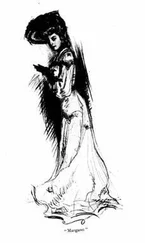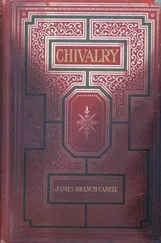James Cabell - Domnei. A Comedy of Woman-Worship
Здесь есть возможность читать онлайн «James Cabell - Domnei. A Comedy of Woman-Worship» весь текст электронной книги совершенно бесплатно (целиком полную версию без сокращений). В некоторых случаях можно слушать аудио, скачать через торрент в формате fb2 и присутствует краткое содержание. Жанр: Фэнтези, на английском языке. Описание произведения, (предисловие) а так же отзывы посетителей доступны на портале библиотеки ЛибКат.
- Название:Domnei. A Comedy of Woman-Worship
- Автор:
- Жанр:
- Год:неизвестен
- ISBN:нет данных
- Рейтинг книги:5 / 5. Голосов: 1
-
Избранное:Добавить в избранное
- Отзывы:
-
Ваша оценка:
- 100
- 1
- 2
- 3
- 4
- 5
Domnei. A Comedy of Woman-Worship: краткое содержание, описание и аннотация
Предлагаем к чтению аннотацию, описание, краткое содержание или предисловие (зависит от того, что написал сам автор книги «Domnei. A Comedy of Woman-Worship»). Если вы не нашли необходимую информацию о книге — напишите в комментариях, мы постараемся отыскать её.
Domnei. A Comedy of Woman-Worship — читать онлайн бесплатно полную книгу (весь текст) целиком
Ниже представлен текст книги, разбитый по страницам. Система сохранения места последней прочитанной страницы, позволяет с удобством читать онлайн бесплатно книгу «Domnei. A Comedy of Woman-Worship», без необходимости каждый раз заново искать на чём Вы остановились. Поставьте закладку, и сможете в любой момент перейти на страницу, на которой закончили чтение.
Интервал:
Закладка:
—THOMAS UPCLIFFE.
Nicolas de Caen, one of the most eminent of the early French writers of romance, was born at Caen in Normandy early in the 15th century, and was living in 1470. Little is known of his life, apart from the fact that a portion of his youth was spent in England, where he was connected in some minor capacity with the household of the Queen Dowager, Joan of Navarre. In later life, from the fact that two of his works are dedicated to Isabella of Portugal, third wife to Philip the Good, Duke of Burgundy, it is conjectured that Nicolas was attached to the court of that prince . . . . Nicolas de Caen was not greatly esteemed nor highly praised by his contemporaries, or by writers of the century following, but latterly has received the recognition due to his unusual qualities of invention and conduct of narrative, together with his considerable knowledge of men and manners, and occasional remarkable modernity of thought. His books, therefore, apart from the interest attached to them as specimens of early French romance, and in spite of the difficulties and crudities of the unformed language in which they are written, are still readable, and are rich in instructive detail concerning the age that gave them birth . . . . Many romances are attributed to Nicolas de Caen. Modern criticism has selected four only as undoubtedly his. These are—(1) Les Aventures d'Adhelmar de Nointel , a metrical romance, plainly of youthful composition, containing some seven thousand verses; (2) Le Roy Amaury , well known to English students in Watson's spirited translation; (3) Le Roman de Lusignan , a re-handling of the Melusina myth, most of which is wholly lost; (4) Le Dizain des Reines , a collection of quasi-historical novellino interspersed with lyrics. Six other romances are known to have been written by Nicolas, but these have perished; and he is credited with the authorship of Le Cocu Rouge , included by Hinsauf, and of several Ovidian translations or imitations still unpublished. The Satires formerly attributed to him Bülg has shown to be spurious compositions of 17th century origin.
—E. Noel Codman, Handbook of Literary Pioneers.
Nicolas de Caen est un représentant agréable, naïf, et expressif de cet âge que nous aimons à nous représenter de loin comme l'âge d'or du bon vieux temps … Nicolas croyait à son Roy et à sa Dame, il croyait surtout à son Dieu. Nicolas sentait que le monde était semé à chaque pas d'obscurités et d'embûches, et que l'inconnu était partout; partout aussi était le protecteur invisible et le soutien; à chaque souffle qui frémissait, Nicolas croyait le sentir comme derrière le rideau. Le ciel par-dessus ce Nicolas de Caen était ouvert, peuplé en chaque point de figures vivantes, de patrons attentifs et manifestes, d'une invocation directe. Le plus intrépide guerrier alors marchait dans un mélange habituel de crainte et de confiance, comme un tout petit enfant. A cette vue, les esprits les plus émancipés d'aujourd'hui ne sauraient s'empêcher de crier, en tempérant leur sourire par le respect: Sancta simplicitas!
—Paul Verville, Notice sur la vie de Nicolas de Caen.
"Of how, through Woman-Worship, knaves compound
With honoure; Kings reck not of their domaine;
Proud Pontiffs sigh; & War-men world-renownd,
Toe win one Woman, all things else disdaine:
Since Melicent doth in herselfe contayne
All this world's Riches that may farre be found.
"If Saphyres ye desire, her eies are plaine;
If Rubies, loe, hir lips be Rubyes sound;
If Pearles, hir teeth be Pearles, both pure & round;
If Yvorie, her forehead Yvory weene;
If Gold, her locks with finest Gold abound;
If Silver, her faire hands have Silver's sheen.
"Yet that which fayrest is, but Few beholde,
Her Soul adornd with vertues manifold."_
—SIR WILLIAM ALLONBY.
THE ROMANCE OF LUSIGNAN OF THAT FORGOTTEN MAKER IN THE FRENCH TONGUE, MESSIRE NICOLAS DE CAEN. HERE BEGINS THE TALE WHICH THEY OF POICTESME NARRATE CONCERNING DAME MELICENT, THAT WAS DAUGHTER TO THE GREAT COUNT MANUEL.
PART ONE
PERION
How Perion, that stalwart was and gay,
Treadeth with sorrow on a holiday,
Since Melicent anon must wed a king:
How in his heart he hath vain love-longing,
For which he putteth life in forfeiture,
And would no longer in such wise endure;
For writhing Perion in Venus' fire
So burneth that he dieth for desire.
1. How Perion Was Unmasked
Perion afterward remembered the two weeks spent at Bellegarde as in recovery from illness a person might remember some long fever dream which was all of an intolerable elvish brightness and of incessant laughter everywhere. They made a deal of him in Count Emmerick's pleasant home: day by day the outlaw was thrust into relations of mirth with noblemen, proud ladies, and even with a king; and was all the while half lightheaded through his singular knowledge as to how precariously the self-styled Vicomte de Puysange now balanced himself, as it were, upon a gilded stepping-stone from infamy to oblivion.
Now that King Theodoret had withdrawn his sinister presence, young Perion spent some seven hours of every day alone, to all intent, with Dame Melicent. There might be merry people within a stone's throw, about this recreation or another, but these two seemed to watch aloofly, as royal persons do the antics of their hired comedians, without any condescension into open interest. They were together; and the jostle of earthly happenings might hope, at most, to afford them matter for incurious comment.
They sat, as Perion thought, for the last time together, part of an audience before which the Confraternity of St. Médard was enacting a masque of The Birth of Hercules . The Bishop of Montors had returned to Bellegarde that evening with his brother, Count Gui, and the pleasure-loving prelate had brought these mirth-makers in his train. Clad in scarlet, he rode before them playing upon a lute—unclerical conduct which shocked his preciser brother and surprised nobody.
In such circumstances Perion began to speak with an odd purpose, because his reason was bedrugged by the beauty and purity of Melicent, and perhaps a little by the slow and clutching music to whose progress the chorus of Theban virgins was dancing. When he had made an end of harsh whispering, Melicent sat for a while in scrupulous appraisement of the rushes. The music was so sweet it seemed to Perion he must go mad unless she spoke within the moment.
Then Melicent said:
"You tell me you are not the Vicomte de Puysange. You tell me you are, instead, the late King Helmas' servitor, suspected of his murder. You are the fellow that stole the royal jewels—the outlaw for whom half Christendom is searching—"
Thus Melicent began to speak at last; and still he could not intercept those huge and tender eyes whose purple made the thought of heaven comprehensible.
The man replied:
"I am that widely hounded Perion of the Forest. The true vicomte is the wounded rascal over whose delirium we marvelled only last Tuesday. Yes, at the door of your home I attacked him, fought him—hah, but fairly, madame!—and stole his brilliant garments and with them his papers. Then in my desperate necessity I dared to masquerade. For I know enough about dancing to estimate that to dance upon air must necessarily prove to everybody a disgusting performance, but pre-eminently unpleasing to the main actor. Two weeks of safety till the Tranchemer sailed I therefore valued at a perhaps preposterous rate. To-night, as I have said, the ship lies at anchor off Manneville."
Читать дальшеИнтервал:
Закладка:
Похожие книги на «Domnei. A Comedy of Woman-Worship»
Представляем Вашему вниманию похожие книги на «Domnei. A Comedy of Woman-Worship» списком для выбора. Мы отобрали схожую по названию и смыслу литературу в надежде предоставить читателям больше вариантов отыскать новые, интересные, ещё непрочитанные произведения.
Обсуждение, отзывы о книге «Domnei. A Comedy of Woman-Worship» и просто собственные мнения читателей. Оставьте ваши комментарии, напишите, что Вы думаете о произведении, его смысле или главных героях. Укажите что конкретно понравилось, а что нет, и почему Вы так считаете.



